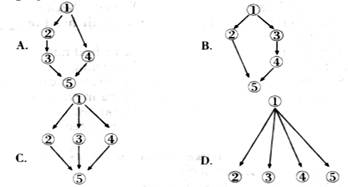Many years ago three soldiers, hungry and tired of battles, came upon a small village. The villagers,
36 a poor harvest and many years of war, quickly
37 what little they had to eat and met the three at the village square, wringing(絞)their clothes and complaining of the
38 shortages.
The soldiers spoke quietly among themselves and the first soldier then
39 the village elders. “Your tired fields have left you
40 to share, so we will share what little we have: the
41 of how to make soup from stones.”
42 the villagers were interested and soon a fire was put to the town’s greatest pot as the soldiers dropped three smooth
43 into the pot full of water. “Now this will be a fine soup,” said the second soldier, “but a little salt and some parsley(歐芹)would make it
44 !” Up jumped a villager, crying “I’ve just remembered
45 some have been left!” She ran away,
46 with the parsley and salt.
47 the water boiled, corn, carrots, beef and cream
48 their way into the pot when all sat
49 to have a large meal.
The villagers ate and sang and danced well into the
50 , full of energy again by the meal and their new-found friends. In the next morning the three soldiers
51 up to find the whole village standing before them. At their feet
52 a bag of the village’s best bread and cheese. An elder said that the soldiers had given them the
53 gift: the secret of how to make soup from stones and they would never forget. The third soldier turned to the
54 and said, “There is no secret, but this is certain: it is only by
55 that we may enjoy a large meal.”
| 小題1: | | A.having | B.disliking | C.knowing | D.suffering |
|
| 小題2: | | A.threw | B.hid | C.covered | D.collected |
|
| 小題3: | | A.clothing | B.money | C.food | D.water |
|
| 小題4: | | A.called for | B.believed in | C.looked for | D.turned to |
|
| 小題5: | | A.nothing | B.everything | C.anything | D.something |
|
| 小題6: | | A.skill | B.secret | C.study | D.story |
|
| 小題7: | | A.Quietly | B.Naturally | C.Suddenly | D.Finally |
|
| 小題8: | | A.coins | B.spoons | C.stones | D.knives |
|
| 小題9: | | A.salty | B.wonderful | C.sweet | D.beautiful |
|
| 小題11: | | A.leaving | B.starting | C.playing | D.returning |
|
| 小題12: | | A.while | B.Though | C.As | D.Since |
|
| 小題13: | | A.lost | B.went | C.found | D.directed |
|
| 小題15: | | A.night | B.morning | C.afternoon | D.day |
|
| 小題16: | | A.stayed | B.jumped | C.woke | D.moved |
|
| 小題18: | | A.greatest | B.simplest | C.worst | D.funniest |
|
| 小題19: | | A.adults | B.soldiers | C.workmen | D.crowd |
|
| 小題20: | | A.learning | B.sharing | C.borrowing | D.trusting |
|

